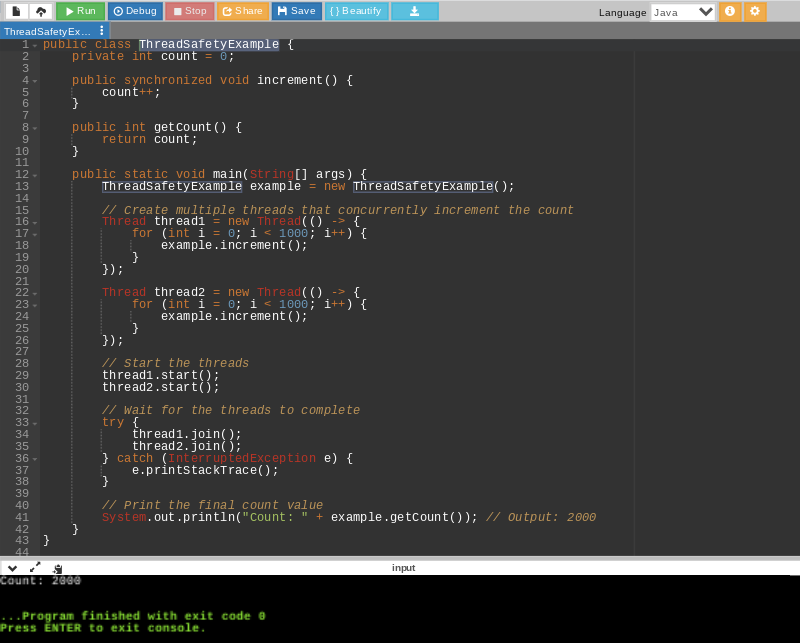Why Are Strings Immutable in Java? Insights right into Memory Performance
Wiki Article
Unalterable Strings: A Key Component in Ensuring Information Consistency and Integrity
In the world of information administration, the value of unalterable strings can not be overstated. These changeless sequences of characters play a crucial duty in upholding the honesty and accuracy of info within systems. By keeping a state of immutability, data consistency is ensured, promoting a foundation of dependability whereupon important procedures count. The concept of immutable strings goes beyond plain technicality; it is a linchpin in the complicated internet of data governance. As we check out the benefits, implementation methods, and sensible applications of unalterable strings, a more clear image arises of their indispensable nature in protecting the electronic landscape.The Concept of Immutable Strings
Immutable strings, a fundamental idea in programs, refer to strings that can not be changed as soon as they are developed. Essentially, once a string worth is appointed, any type of operation that shows up to change the string actually creates a new string. This immutability ensures data consistency and reliability in applications, as it avoids unforeseen modifications to the original information.
Benefits in Information Uniformity
Data uniformity is essential in numerous elements of software program advancement, including database management, multi-threaded environments, and dispersed systems (Why are strings immutable in Java?). Unalterable strings add substantially to attaining this consistency by preventing information corruption as a result of concurrent accessibility. In circumstances where multiple processes or threads interact with the same data at the same time, immutable strings work as a safeguard versus race conditions and synchronization issues
Moreover, the immutability of strings streamlines debugging and screening processes. With unalterable strings, developers can rely on that once a string is established, it will certainly continue to be the same, making it easier to map the resource of mistakes and making sure that test instances create regular results. This integrity in data taking care of inevitably causes more steady and robust applications.

Executing Immutable Strings
Making sure the immutability of strings requires a thoughtful approach to their execution in software application development. Once a string things is produced, one key approach is to develop string courses in a way that protects against adjustments. By making strings unalterable, developers can enhance information consistency and integrity in their applications.To execute immutable strings effectively, programmers should favor developing new string things instead of customizing existing ones. This practice makes sure that once a string is assigned a value, it can not be transformed. In addition, any procedure that shows up to modify the string needs to produce a brand-new string with the desired modifications instead of altering the original.
Moreover, utilizing unalterable strings can streamline concurrency monitoring in multi-threaded environments. Considering that unalterable strings can not be transformed after creation, they can be safely shared amongst numerous strings without the risk of data corruption.
Function in Integrity Guarantee
In software program development, the use of unalterable strings plays a crucial function in making certain the reliability of information operations. Immutable strings, as soon as developed, can not be modified, making sure that the information they stand for stays regular throughout the application's execution. This immutability residential property supplies a degree of guarantee that the information being processed will not be accidentally transformed, causing unforeseen results or mistakes in the system.By integrating immutable strings right into software design, designers can boost the integrity of their applications by minimizing the risks linked with mutable data - Why are strings immutable in Java?. Immutable strings help in preventing information corruption or unintentional adjustments, which can be especially critical when taking care of delicate info or when data integrity is vital
Moreover, making use of unalterable strings streamlines simultaneous processing, as several strings can securely gain access to and share string data without the danger of one thread altering the web content while one more is reviewing it. This element contributes significantly to the total dependability of the software application system, guaranteeing foreseeable and consistent actions in information handling procedures.
Applications and System Combination
The smooth combination of unalterable strings into numerous applications and systems is critical for making sure durable data uniformity and dependability throughout diverse technical atmospheres - Why are strings immutable in Java?. Unalterable strings play a critical function in enhancing the honesty of information exchanges and interactions within facility software application ecosystems. By incorporating unalterable strings into applications, designers can reduce the dangers connected with data meddling, unauthorized modifications, and unintended alterations, thereby strengthening the general security position of the systemImmutable strings can boost interoperability between diverse like this systems by supplying a standardized format for data representation, enabling a lot more efficient data handling and exchange methods across interconnected systems. By embracing immutable strings in applications and system assimilation procedures, companies browse this site can fortify their data infrastructure and maintain the dependability and consistency of their information possessions.
Verdict
In verdict, unalterable strings play a critical duty in maintaining information uniformity and dependability in different applications and system assimilations. By making sure that strings can not be altered once developed, the integrity of information is protected, lowering the danger of errors and inconsistencies. Carrying out immutable strings can significantly boost the dependability of systems, inevitably resulting in more exact and trustworthy data handling.
Report this wiki page